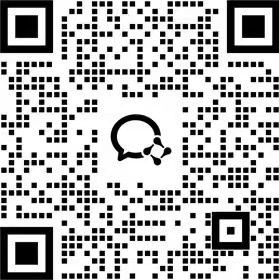
雅思口语素材库-Part2&3范文及解题思路:帮助小孩的经历
了解雅思口语题库及范文有助于提高口语表达能力,增加流利度,确保答福性和连贯性,供备选答案,增强考试的自信心。
帮助小孩的经历
Describe a time when you helped a child You should say:
When it was
How you helped him/her Why you helped him/he
and explain how you felt about it.
Plan your talk:
When it was
(Optional) Where you were
(Optional) Why you were there
(Optional) How you met that child
(Optional) What the child looked like
How you helped him/her
(Optional) Why you were there
Why you helped him/her
(Optional) How you felt at that moment
And explain how you felt about it
(Optional) How you felt about that child
(Optional) How you felt about helping a child
解题思路:
本题要描述“帮助一个孩子的一次经历”,所以要把帮助这个孩子的前因后果讲清楚。在讲述的时候我们要选取一个合适的场景,让我们和这个孩子“相遇”,所以我们可以选一些孩子会去的场所,比如篮球场、书店、超市等。在这里也可以描述一下孩子的样貌。接下来我们要给帮助孩子制造一个“理由”,这个理由可以来源于我们作为比孩子年长的人所具备的孩子不具备的能力,比如我们拥有手机,那么我们就可以把手机借给孩子联络他们的家人,最后我们可以谈谈自己的感受,与一切涉及帮助他人的话题一致,帮助他人这种“利他行为”会给我们带来美好的感受以及增强与他人和社会的连接感。此外我们还可以把自己对孩子的感受描述进去,最后要提醒的是,描述的时态主要以过去时为主。
Sample Answer 1 :
Well, frankly speaking, as a college student, I don't have many chances to make contact with kids, you know, they're kind of out of reach. So it took me a while to come up with such an experience. But there was a time that I was having an internship in a bookstore as a shop assistant. It was the summer break, so many children lingered here to read. They normally stayed for the whole afternoon until their parents were off work and came here to pick them up. Sometimes they selected some of their favourite books and their parents would feel glad to pay for them. But one day, I noticed a little girl, aged around 9 or 10, holding a book in her hand, sticking around the bookshelves. She looked serious and hesitant, so as a shop assistant, I went up to her and was ready to offer some help. At first, she was reluctant to talk and told me that she was doing OK. But after half an hour or so, I found she was still there, holding that book. So I strode towards her, bent my legs, and asked her in a gentle manner whether she wanted me to give her a hand. She then started to talk in a very low voice and I learned that she wanted to buy her Mum a book as a birthday present, but she checked the price on the back cover and found that it was out of her budget. The book charged 50 yuan, but all she had was 40 yuan. I decided to help her on the spot by using my staff discount. But in order to make her comfortable, I told her that there happened to be a special discount for children who intended to buy gifts for their parents. I could still remember how she looked after hearing this, I mean, she looked over the moon and held the book more firmly in hand. You know, this could be one of the most precious moments I could recollect in my life. The point is not about saving the little girl from the dilemma, it's more about how her behavior touched me in a genuine way.
Sample Answer 2 :
So, this actually took place not long ago on a basketball court in my neighborhood. Typically, you don't see many kids here because they can get injured easily when a ball or a person runs into them. But on that day, when I was playing some pickup games with my friends, I saw a little boy. He was roughly, you know, 7 to 8 years old, around primary school age. He was wandering about and looking at us from time to time, but he didn't dare to approach us. I'm not the kind of person who likes kids, but that doesn't mean I'll be the bystander when a child is in need. So, I went to him, got down, and asked whether he needed some help. This boy, Ming, told me that he had just finished that day's basketball training session with his coach. Ming told his coach that his mum would pick him up within 10 to 15 minutes, so his coach left, which, to me, is irresponsible. Usually, Ming would carry a smartwatch with him, and he would be able to make a call to his mom just in case. But unfortunately, on that day, before he came to practice, he forgot to charge his device. So now he was left alone, waiting for his mother for 20 minutes and without any means to get in touch with her, which was why he came to us in the first place. Luckily, he still remembered his mother's phone number, so I just dialed that number using my phone and his mom picked up the call. It turned out, she got stuck in traffic. She arrived 10 minutes later and thanked me for keeping his child safe. I wouldn't say such an experience changed my attitude towards kids in general, but it did put a smile on my face.
Part 3:
Question:Why is it necessary to do volunteer services?
解题思路:
这道题目在问:志愿者服务是否必要?在分析原因的时候我们有两个方向个是思考志愿者服务会给参与者和被服务的集体以及个人都带来好处,另个角度可以是反向思考,即想想如果没有志愿者服务会怎样 ? 是否会产生些不好的结果,而这个结果是否会给社会带来不好的影响? 这样就可以想到志愿者服务的必要性了。如果你准备说多个原因,那么在说的时候可以采用并列的连接手段来串联思路。
Sample Answer:
Well, I think the major reason why volunteering is needed is that it has huge benefits for all, including people in need of help, the whole community as well as volunteer workers themselves. Apart from that, many organizations and charities for good causes don't usually have enough funds to hire full-time staff. In fact, they depend on teams of volunteers who are willing to devote their time and energy without financial rewards to keep things running.
Question:What can schools do to develop students' awareness of volunteering?
解题思路:
这道题目在问 : 学校可以做些什么来提高学生做志愿者工作的意识 ? 是一道罗列信息题。思路上来看,可以先想想学生为什么没有做志愿者的意识,会存在哪些可能的原因·然后再想想这其中有哪些是可以由学校牵头来改善的。在罗列具体措施的时候,需要使用一系列的并列连接词来串联你的思路。
Sample Answer:
Well, a lot of things can be done to motivate students to take part in volunteering. Firstly, schools can invite experienced community workers to introduce types of volunteering services that are viable for students in the local area. If they know what they are capable of doing, they'll probably feel more confident to get started. Also, schools can invite students who have done good deeds to share what they've gained through their altruistic acts, like the boost of both mental and physical health, more friends they've made as well as chances to know about the society and obtain practical skills. I don't really think providing rewards is necessary, as this act is actually sending the message that the purpose of volunteering is to get something in return, which will mislead students.
Question:Who benefit more from the volunteer services, the volunteers or the people helped?
解题思路:
这道题目在问:谁能够从志愿者服务中获益更多,志愿者还是被帮助的人?很明显,无论是志愿者还是被帮助的人都能从中获益,只是获得的好处体现在不同的方面·对于被帮助的人来说,一个好处就是自己面临的问题得到了解决,并且不需要支付费用,对于志愿者来说,获得的好处更多是指向精神方面的,比如通过帮助他人获得了内心的满足,体验到了人和人之间的连接以及扩大了自己的社交圈等。在实际答题的时候,我们可以多说一些具体的例子来扩充答案。在整合两个答案的时候我们可以使用使一个表示对比的连接词来串联答案。
Sample Answer:
As I've mentioned, it's beneficial for both sides. For people who are in need, their immediate problems can be solved via good deeds done by others, like getting food to fill their belly, receiving a free operation to relieve pain, learning a new skill to make a living, or having their home rebuilt after a catastrophic disaster. In return, what volunteers get from their altruistic behaviours are more spiritual rather than financial rewards. In fact, they'll gain a sense of genuine happiness from being needed and the noble acts will also boost their self-esteem, which is essential for mental well-being. Another perk is that you'll be given the chance to make friends with like-minded people who are selfless and warm-hearted.
2023年最新雅思模拟真题推荐:
| 2023雅思口语模考真题最新 |
| 2023雅思写作模考真题最新 |
| 2023雅思阅读模考真题最新 |
| 2023雅思听力模考真题最新 |
| 雅思口语模考 |
| 雅思写作批改 |
| 雅思真题资料题库PDF下载 |







